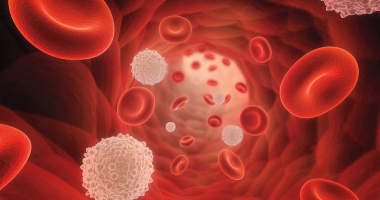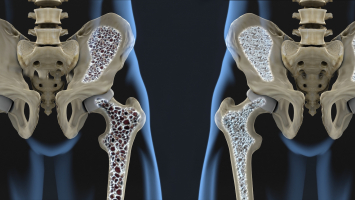Top 5 Signs and Symptoms of Ovarian Cancer
Ovarian cancer is one of the most common cancers in women, after breast and cervical cancer. Every year there are millions of new cases. The disease progresses ... read more...silently, without obvious symptoms, so it is difficult to recognize, when the disease is detected, it has moved to a late stage. Ovarian cancer is often fatal because it is often diagnosed late. Although it is a dangerous disease, it slowly wreaks havoc on women's health. The following knowledge will help you have an overview of this dangerous disease and be able to detect it as soon as possible.
-
The lowest region of the belly and pelvis is where pelvic pain is felt. Pelvic discomfort in women may be a sign of problems with the digestive, reproductive, or urinary systems, as well as musculoskeletal problems. Pelvic pain can be subtle, severe, or intermittent, depending on the cause. There are occasions when pelvic discomfort will spread to the thighs, buttocks, or lower back. Pelvic pain can be persistent or abrupt, severe, and brief (acute pelvic pain) (chronic pelvic pain).
If other health issues are what are causing your pelvic discomfort, you can get rid of them by treating those issues. In this syndrome, tissue from the uterine lining develops on the exterior of the uterus. These tissues respond to the menstrual cycle, just as the lining of the uterus thickens, breaks down, and bleeds each month, as hormone levels rise or fall. Because it occurs outside the ovarian, blood and tissue cannot exit the body through the vagina. Instead, they remain in the abdomen and they can lead to painful cysts and fibrous bands of scar tissue.

Pelvic pain 
Pelvic pain -
According to World Cancer Research Fund International, a leading authority on cancer prevention research, ovarian cancer is the eighth most common cancer in women. More people die from it than from any other cancer of the female reproductive system. A woman with ovarian cancer may not have any symptoms or only experience minor ones up until the disease has progressed to an advanced stage, making early detection challenging.
Because they are similar to those of several other diseases, the early indicators of ovarian cancer are frequently disregarded. Frequent urination, urgent need to urinate, and discomfort when urinating may make you think of urinary-related diseases such as cystitis, and urinary tract infection,... without thinking that cervical cancer also has this symptom. Therefore, if you notice that this symptom persists and gets worse, it is imperative that you see your doctor right away.
Change urinating habits 
Change urinating habits -
Any cancer can cause anemia owing to persistent inflammation, reduced erythropoietin production, and impaired iron metabolism. For ovarian cancer, anemia can be particularly severe when it is accompanied by protracted vaginal hemorrhage. People with anemia frequently experience fatigue and low energy levels. Unexpected weight loss and hunger reduction are additional typical signs of cancer patients.
If found early enough, ovarian cancer has a 92 percent chance of being successfully treated. Even if caught in the precancerous stage, the rate can almost reach 100%. However, the majority of cases are discovered too late, making them incurable. As a result, you should seek medical attention as soon as you can if you experience any of the alarming symptoms listed above. In addition, even if there are no suspicious signs, you should have regular early ovarian cancer screening tests and get vaccinated against ovarian cancer to prevent the disease effectively.

Anemia 
Anemia -
In case the vaginal discharge is abnormal, has a strange color (yellow, green like pus or blood), and has an unpleasant smell... It is most likely a sign of stage cervical cancer in the beginning. Because other "private area" diseases like ovarian cancer, salpingitis, and others can also present aberrant indications in vaginal discharge, patients frequently subjectively fail to consider ovarian cancer.
If there is a connection to ovarian cancer, these symptoms continue. The disease's greater manifestation is also a marker of the tumor's expansion. If the cancer is not treated, it may expand outside the ovary, making the condition more challenging to cure. It is challenging for you since the ovaries are deep inside the abdominal cavity. There is no routine screening for ovarian cancer. That is why full attention to abnormalities is so essential and valuable to diagnosis.

Abnormal vaginal discharge 
Abnormal vaginal discharge -
Abnormal vaginal bleeding is the most prevalent symptom of ovarian cancer and one of its warning signals. The two main categories of vaginal bleeding are cyclical (often referred to as menstrual) and non-cyclical. Vaginal bleeding that is unrelated to menstruation is abnormal in all circumstances. However, not all menstrual-related vaginal bleeding is normal. It is sometimes referred to as abnormal vaginal bleeding if the amount or kind of menstrual blood during menstruation is abnormal.
You should be seeing a medical institution right away for an evaluation if you see any indications of irregular uterine bleeding. A diagnosis will be made by an obstetrician and gynecologist, who will also assess your age-related risk of contracting the illness. Most problems are simple to recognize, not life-threatening, and treatable. Others may be more serious and require tests for an accurate diagnosis.

Abnormal vaginal bleeding 
Abnormal vaginal bleeding


























